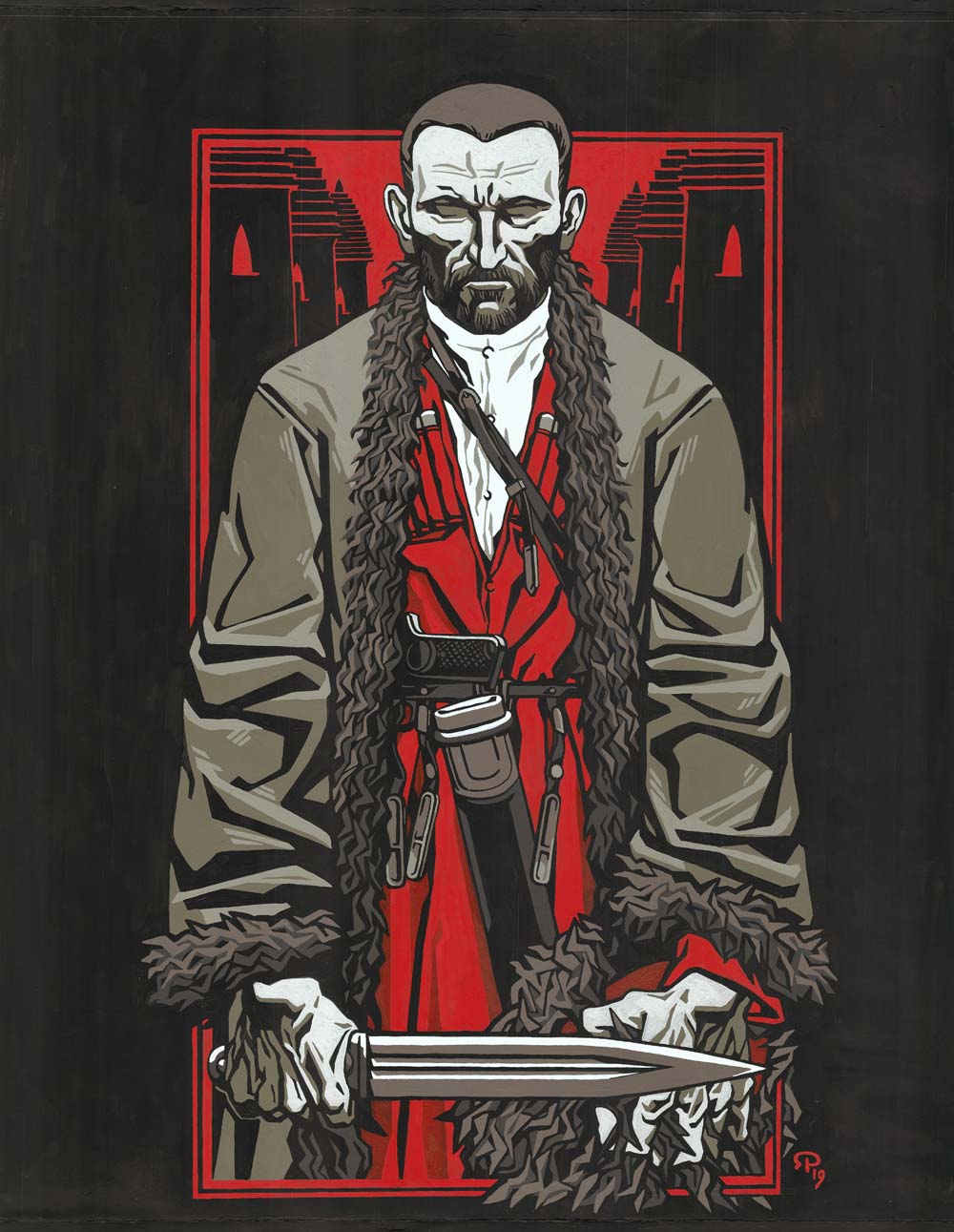

Sulumbek of Sagopshi
Sulumbek, who was nicknamed "bold" was born in 1878 in a peasant family in a village of Sagopshi of the Vladikavkaz region.
Because of a conflict with a Cossack squad officer, the future abrek was taken to prison. Where he first met Zelimkhan Kharachoyevsky in 1901. Archive documents show that Zelimkhan and Sulumbek escaped from the prison together. That was how a highlander from the village of Sagopshi joined the way of the abrek. They became friends with Zelimkhan. Many times they made daring raids together. They took part in the robbery of the Kizlyar bank, and in attacks on the rich, the cash registers and the post office. But Sulumbek always chose the most dangerous road for himself.
With his daring and bravery Sulumbek terrified representatives of the tsarist administration. Though sometimes might have been called Zelimkhan Kharachoi's "right-hand man", he was just as brave and noble as he was. However, Sulumbek was a loner for the most part, and only occasionally accepted his leadership.
In 1910 the entire mountainous region of Ingushetia was encircled by the tsarist army, huge devastation of Ingush villages are happening and repression of the people who were in fact Zelimkhan's concealment, and the authorities also demanded from the inhabitants of the village of Sagopshi that to turn over Sulumbek. Despite persuasions from Zelimkhan and his fellow villagers, Sulumbek did not want to put his people in danger and decided to surrender. He knew that his fellow villagers and family would not give him up. After all, in people's eyes abreks were not only fighters against the tsarist power, but also protectors of the poor, people of crystal clearness and courage.
On August 21, 1910 an abrek decides to surrender and leaves for Nazran fortress with only one thought in his heart - he will not cause weeping of innocent children and women anymore. Sulumbek has only one condition: "The death penalty on the gallows must be replaced by a firing squad".
Sulumbek Sagopshinsky had an innate and ineradicable sense of dignity, and at the execution, despite the fact that the word given to him was not kept, he retained a rare external calm and self-control to the very end and kicked out himself the chair on which he stood under the gallows.
Because of a conflict with a Cossack squad officer, the future abrek was taken to prison. Where he first met Zelimkhan Kharachoyevsky in 1901. Archive documents show that Zelimkhan and Sulumbek escaped from the prison together. That was how a highlander from the village of Sagopshi joined the way of the abrek. They became friends with Zelimkhan. Many times they made daring raids together. They took part in the robbery of the Kizlyar bank, and in attacks on the rich, the cash registers and the post office. But Sulumbek always chose the most dangerous road for himself.
With his daring and bravery Sulumbek terrified representatives of the tsarist administration. Though sometimes might have been called Zelimkhan Kharachoi's "right-hand man", he was just as brave and noble as he was. However, Sulumbek was a loner for the most part, and only occasionally accepted his leadership.
In 1910 the entire mountainous region of Ingushetia was encircled by the tsarist army, huge devastation of Ingush villages are happening and repression of the people who were in fact Zelimkhan's concealment, and the authorities also demanded from the inhabitants of the village of Sagopshi that to turn over Sulumbek. Despite persuasions from Zelimkhan and his fellow villagers, Sulumbek did not want to put his people in danger and decided to surrender. He knew that his fellow villagers and family would not give him up. After all, in people's eyes abreks were not only fighters against the tsarist power, but also protectors of the poor, people of crystal clearness and courage.
On August 21, 1910 an abrek decides to surrender and leaves for Nazran fortress with only one thought in his heart - he will not cause weeping of innocent children and women anymore. Sulumbek has only one condition: "The death penalty on the gallows must be replaced by a firing squad".
Sulumbek Sagopshinsky had an innate and ineradicable sense of dignity, and at the execution, despite the fact that the word given to him was not kept, he retained a rare external calm and self-control to the very end and kicked out himself the chair on which he stood under the gallows.
"Sulumbek of Sagopshi" 2019. Paper, tempera. 75х48.6

"Above my cap I see only the sky."
"I became an abrek and killed my fear completely."
(I. Kodzoev)
"I became an abrek and killed my fear completely."
(I. Kodzoev)
En
/


